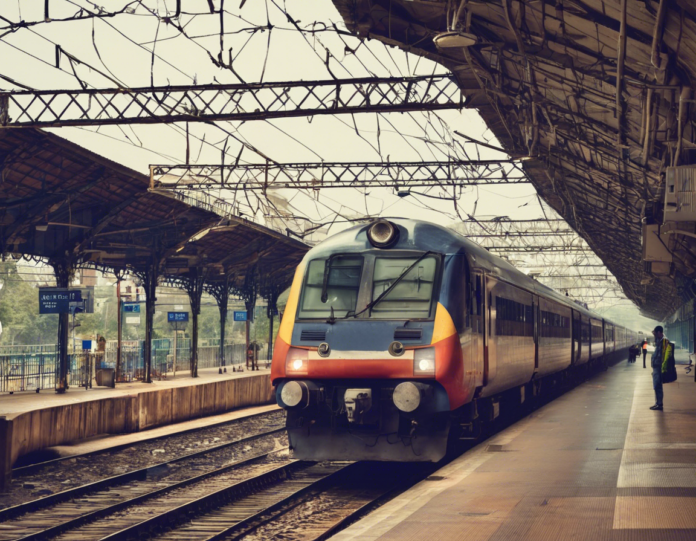Train cancellations can be a frustrating experience for any traveler. Whether it’s due to unforeseen circumstances, changes in plans, or any other reason, cancellations often come with additional charges. Understanding train cancellation charges is crucial to avoid any surprises and ensure a smooth cancellation process.
In this comprehensive guide, we will delve into everything you need to know about train cancellation charges in order to make informed decisions and navigate through the process seamlessly.
Understanding Train Cancellation Charges
What are Train Cancellation Charges?
Train cancellation charges refer to the fees that a passenger has to pay when canceling a train ticket. These charges vary depending on factors such as the timing of the cancellation, the type of ticket booked, and the regulations of the railway service provider.
Factors Affecting Train Cancellation Charges
-
Timing of Cancellation: Most railway services have different cancellation charges based on when the cancellation is made. Typically, the closer the cancellation is to the departure time, the higher the cancellation charges.
-
Type of Ticket: The type of ticket purchased can also impact cancellation charges. Tickets with more flexibility and higher fares often have lower cancellation charges, while tickets with restrictions may have higher charges.
-
Class of Travel: Cancellation charges can also vary based on the class of travel. First-class tickets may have different cancellation charges compared to second or third-class tickets.
-
Railway Service Provider: Different railway companies have their own policies regarding cancellation charges. It’s essential to be aware of the specific terms and conditions of the service provider you are using.
How to Check Cancellation Charges
-
Online: Most railway service providers have detailed information about cancellation charges on their official websites. You can usually find this information in the terms and conditions section or the FAQ page.
-
Customer Service: If you’re unsure about the cancellation charges or need clarification, you can contact the customer service helpline of the railway company for assistance.
Tips for Minimizing Cancellation Charges
-
Book Flexible Tickets: Opt for tickets that offer more flexibility, such as open tickets or tickets with lower cancellation charges.
-
Cancel Early: If you need to cancel your ticket, try to do it as early as possible to avoid higher cancellation charges.
-
Consider Travel Insurance: Travel insurance can sometimes cover cancellation fees due to unforeseen circumstances, providing you with some financial protection.
FAQs About Train Cancellation Charges
1. Are train cancellation charges the same for all tickets?
No, cancellation charges can vary depending on factors such as the timing of cancellation, the type of ticket, and the class of travel.
2. Can I get a refund if I cancel my train ticket?
Yes, you can usually get a refund after deducting the applicable cancellation charges as per the railway service provider’s policy.
3. Are there any exceptions where cancellation charges are waived?
In some cases, such as medical emergencies or natural disasters, railway companies may waive or reduce cancellation charges. It’s essential to provide valid documentation to support your claim.
4. How can I avoid paying high cancellation charges?
To minimize cancellation charges, it’s advisable to book flexible tickets, cancel early, and consider options like travel insurance for added protection.
5. Can cancellation charges be higher for last-minute cancellations?
Yes, most railway services have higher cancellation charges for cancellations made closer to the departure time. It’s best to cancel well in advance to avoid high charges.
6. Can I transfer my ticket to someone else instead of canceling it?
Some railway companies may allow ticket transfers to another passenger, but this policy can vary. It’s recommended to check with the service provider for specific rules and charges.
7. Are there any penalties for not canceling a ticket and not using it?
If you do not cancel your ticket and do not show up for the journey, you may forfeit the entire ticket fare without being eligible for a refund.
8. Do cancellation charges apply to all types of train tickets, including promotional fares?
Yes, cancellation charges apply to most types of train tickets, including promotional fares. The charges may vary based on the terms and conditions associated with the specific ticket.
9. Can cancellation charges be refunded in case of train delays or cancellations by the railway company?
In the event of train delays or cancellations by the railway company, passengers may be eligible for a refund of the ticket fare and cancellation charges. It’s important to follow the refund process as per the company’s guidelines.
10. Are cancellation charges the same for international train tickets?
Cancellation charges for international train tickets may differ from domestic services. It’s advisable to check the cancellation policies specific to international travel and cross-border train services.
Understanding train cancellation charges is essential for every passenger to navigate the complexities of canceling a ticket without facing unexpected fees. By being aware of the factors affecting cancellation charges, checking the policies in advance, and following the recommended tips, travelers can make informed decisions and manage cancellations effectively.


